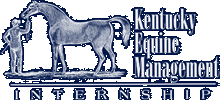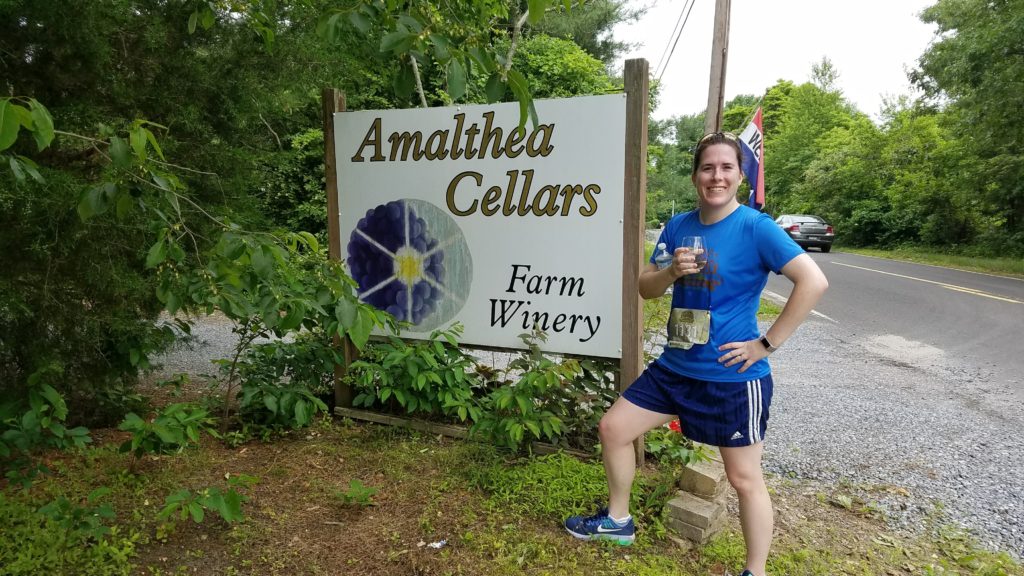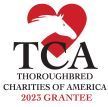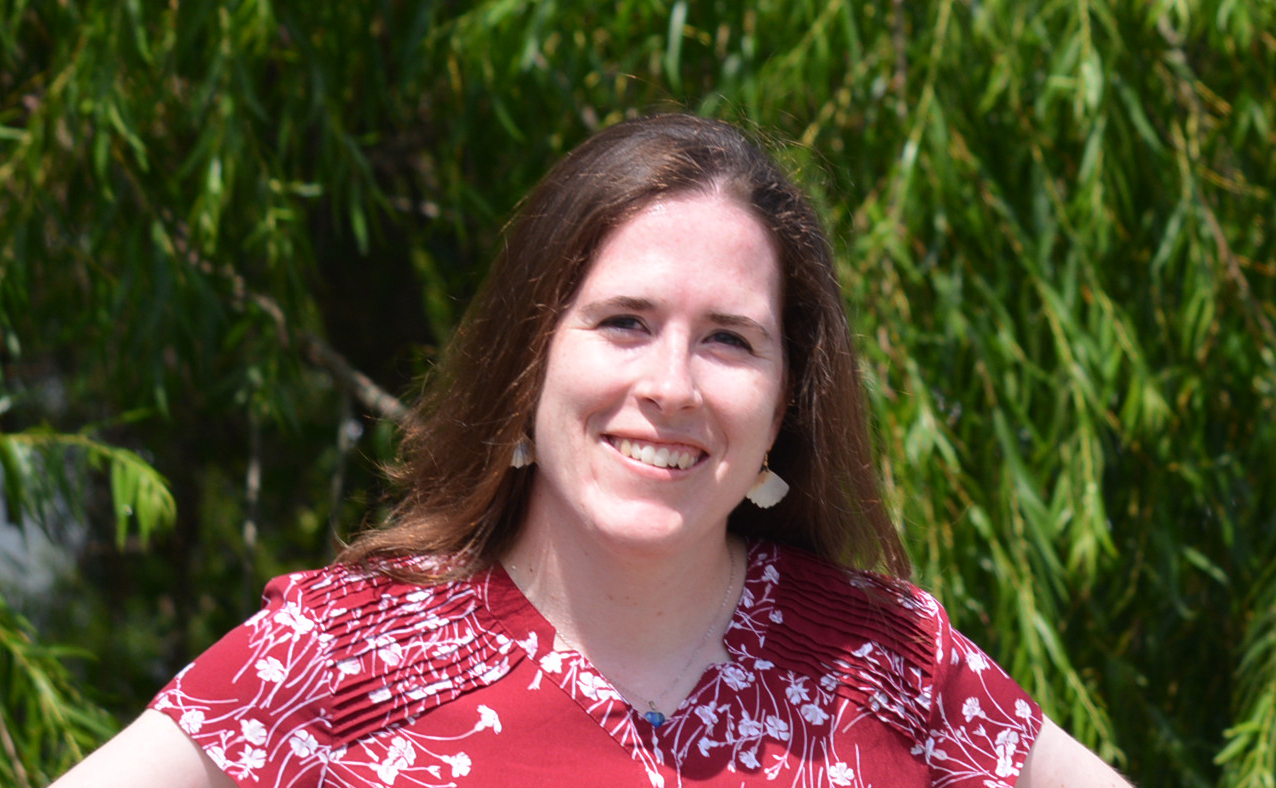
Graduate Spotlight: Heather Anderson
By: Sarah Coleman
Photo Credit: Steve Sherack/TDN
The Horses are Why We Do What We Do
The desire to be a jockey was rapidly outgrown as Heather Anderson quickly surpassed the ideal height for a jock, but her passion for horses didn’t diminish—it simply became refocused. Hailing from Lander, WY, Heather wasn’t the only one in the family with a passion for all things equine: her maternal grandfather, AJ Webeler, bred Quarter Horses on a small scale with his friend Dr. Hays, for years on his farm in Indiana. He was wrapping up his breeding business 1990 however, and, after a coin toss to determine which twin granddaughter to christen his final foal after, Heather Winder (Docs Sidewinder x Lil Susie Command) was the result.
Like many horse lovers, Heather originally toyed with the idea of becoming an equine veterinarian, though by her junior year in high school, she decided that this path wasn’t for her. An avid reader (the Keeneland library is one of her favorite haunts), Heather eventually combined her passion for horses with her love of the written word: She’s now the associate international editor for the Thoroughbred Daily News.
Of Writing and Riding
Heather was adamant that the school she attend have an Animal Science degree; she decided on and attended the University of Wyoming, which was about four hours from her hometown. The distance was enough that it was easy to return home on breaks, yet afforded Heather the ability to spread her wings.
At UW, Heather majored in Animal Science, Production Option. While there were other specialties available including Ag Business and Pre-Vet, Heather had determined by that time that she was more interested in breeding horses than in treating their major injuries. Also during her tenure at UW, Heather cultivated her love of writing and was part of the UW Honors Program, which placed an emphasis on creative writing.
Between her sophomore and junior years at UW, Heather travelled to Summerfield, FL, to attend the Peterson & Smith Equine Internship Program. This internship allowed Heather to participate in all aspects of equine reproduction offered by the Peterson & Smith Equine Reproduction Center, including recipient herd management, management of mares and stallions, embryo transfer and herd health.
She worked closely with Jose Madera and Drs. Matthews and Thacker during her time in Florida. Her internship experience was so positive that Heather began to investigate ways she could further both her education and her skills once she completed her bachelor’s degree in 2009.
As a testament to her ability to embrace a variety of learning experiences, Heather spent her final semester as a UW student abroad, as an exchange student at the University of Birmingham in England. While overseas, Heather made sure she still got her Thoroughbred fix, watching Sea The Stars (Ire) win the G1 2000 Guineas over Newmarket’s Rowley Mile.
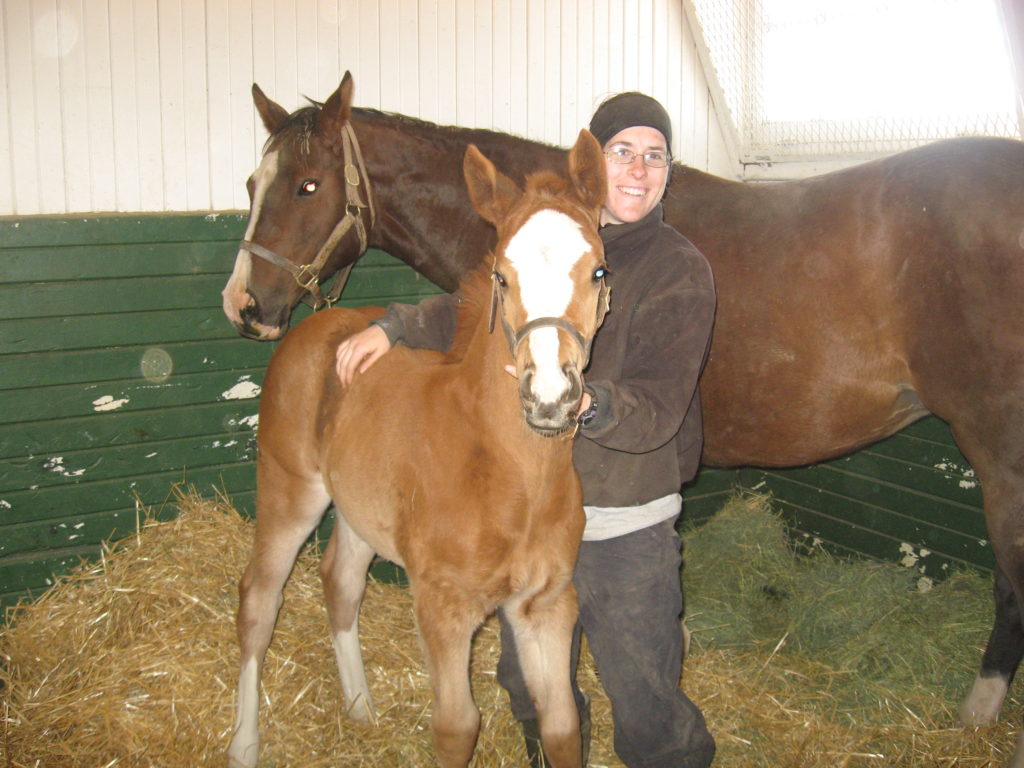
Equine Experiences in the Bluegrass
By the time Heather was set to graduate, she knew her breed of choice was the Thoroughbred; to continue her practical education, she worked at the South Jersey Thoroughbred Rescue and Adoption organization for seven months upon leaving UW. She then applied for the Spring 2010 session of KEMI and was accepted; she soon made her way to the Thoroughbred Mecca of Kentucky.
One of Heather’s favorite parts of the KEMI program was touring the stallion farms. “Seeing the stallions in the flesh instead of looking at advertisements was wonderful,” Heather says. “The late Giant’s Causeway had this aura of command about him when they brought him out at Ashford, and getting my picture taken with Tiznow at WinStar was also amazing,” she reminisces. “The farms were so accommodating [to KEMI students].” When contemplating why each farm was so welcoming to the students, Heather offered: “When we get right down to it, the horses are why we all do what we do.”
Heather’s KEMI placement was Dixiana Farm, just north of Lexington. The farm, which is over a century old, encompasses over 1,000 acres of rolling Bluegrass and has produced multiple champions, including Mata Hari. As part of the Spring semester of KEMI, Heather focused on breeding and foaling during her time at Dixiana. Spring KEMI interns work in the barns and sheds so they can learn the ins-and-outs of working on a professional Thoroughbred farm in the spring.
Some of Heather’s most-treasured KEMI memories involve foaling. “Every single successful foaling I attended that resulted in a healthy foal was memorable,” she explained. “Those first few moments on earth, when they hear something for the first time and their over-sized ears perk up, was quite special. It gave me a sense of fulfillment to know I helped a future racehorse arrive.”
A Change of Profession
As her KEMI internship concluded, Heather returned to New Jersey to be with her boyfriend, who would become her future husband. She searched for three months for an equine-oriented job, sending out resumes to farms and other equine entities, but to no avail; as the horse industry as a whole was still recovering from the 2008 recession, equine jobs seemed to be few and far between.
Never one to wait for an opportunity to come to her, Heather became a pharmacy technician with a national chain—but she always knew she would get back to the Thoroughbreds one day. Though she wasn’t hands-on with horses, Heather’s innate desire to help people was still being met. “While it was quite different from anything I’d tried my hand at previously, I was still helping people and it felt much better to work at something than watch the bills pile up.”
Heather became a nationally certified pharmacy technician in the fall of 2010 and began looking for employment in a hospital pharmacy setting. She also investigated openings at veterinary pharmacies as well, hoping to marry her profession with her passion for horses.
Though she was not as immersed in the industry as she had hoped to be, Heather kept up with the Thoroughbred industry as much as she could, visiting Monmouth Park annually for the G1 Haskell Invitational S. and perusing the Thoroughbred Daily News for information and job opportunities. It was in an issue of the TDN that she came across an ad for an Assistant Editor for the newsletter; she was hired in December of 2013 and works out of the TDN home office in Red Bank, NJ.
It’s Not Work If You Love Your Job
Since starting at the TDN just under 5 ½ years ago, Heather has been promoted to Associate International Editor at the TDN. She assists with the European and international aspects of the paper, in addition to maintaining the TDN stallion database.
Now completely immersed in the Thoroughbred racing industry, Heather feels that her time at KEMI prepared her well for her career with the TDN. Though not hands-on, the contacts she made during her time in the program were integral to her employment with the TDN. Additionally, she notes, KEMI emphasized the plethora of jobs in the industry that were available to people who had the equine and work experiences the KEMI interns obtained—not all of them hands-on. “Hard work is very important, but having the right contacts ranks right up there, too,” Heather explains. “Networking is vital to success in this industry.”
Though it took Heather a few years to make her way back to her chosen industry, she never lost her can-do attitude, giving each position she held the best effort she could. “A good attitude can never be overrated,” Heather says. “Regardless if you’re in your dream job or a short-term position, having a positive outlook makes everything easier. It greases the wheels, so to speak.”
“I’d also add that, even if you have your entire career planned out from the moment you graduate, life has a way of throwing a few surprises. Be open to new opportunities, even if they–at the time–appear out of left field.”
Another key asset KEMI taught Heather was the ability to balance a multiple priorities, including horse work and course work during the program. She quickly realized that the key to efficiency wasn’t to worry about assignments when she was actively working with the horses. “The better and more focused head space I was in, the better the mares and foals responded,” she explained. “Compartmentalization was key” and still important in her life today.
It Takes a Village
Heather is quick to point out that she didn’t achieve her success in the equine industry alone. “My family always supported me growing up and then that trend [of support] continued with my internships,” Heather said. “From my first internship with Peterson & Smith to working with my wonderful Dixiana mentor Dermot Fagan and other staff at Dixiana, every one of these people gave generously of their time and shared their knowledge. That has only continued at the TDN.”
“From Dermot especially, I learned proper horse management with an eye to herd stress reduction. No matter what the activity was, the emphasis was: ‘What is the best way to reduce stress on the animal and accomplish what we need to do?’ be it vaccinating, turn out, a farrier visit, etc. That was not always how I would have originally approached the problem,” she explains.
And for the future? “I owned a small piece of a winning racehorse briefly and I would love to become more involved in the racing/breeding side of the game,” Heather says. “I also hope to keep expanding my bloodstock knowledge and apply that to my work at the TDN.”
